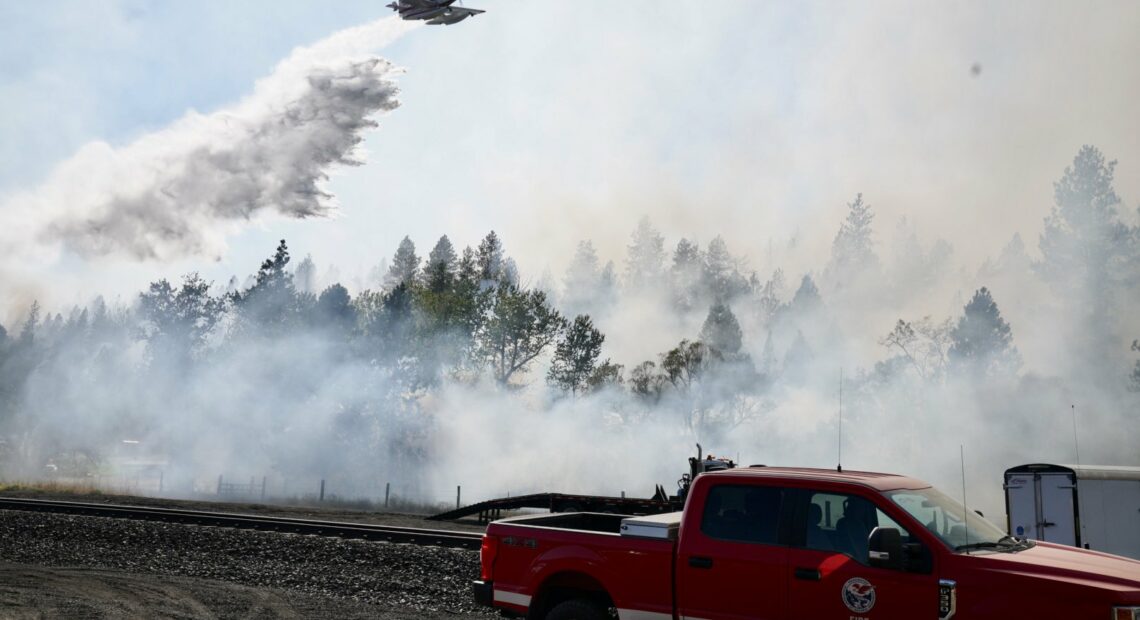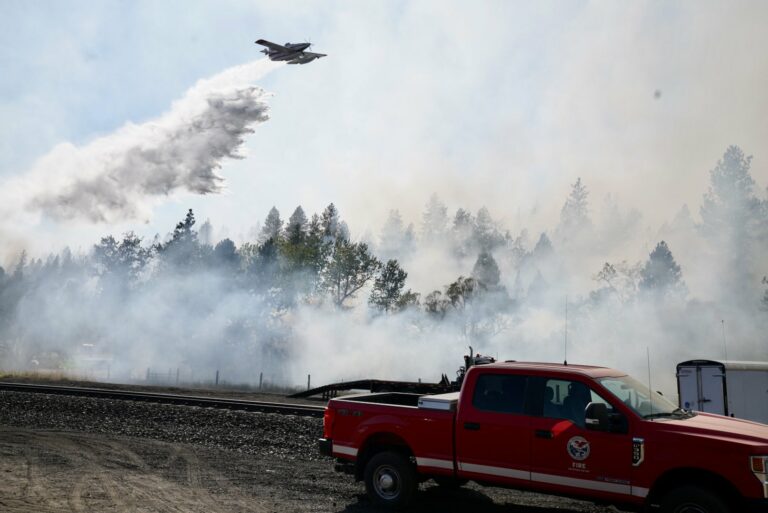
Connecting with non-English speakers is still a challenge during emergencies
Listen
(Runtime 3:39)
Read
When Fabiola Cortez received text messages asking how the fire was going, she drove quickly to her home in Underwood where her husband was waiting for her.
“I found him wetting and leaving the sprinkle on top of the house,” said Cortez in Spanish.
Cortez’s family evacuated during the Tunnel 5 wildfire that destroyed ten homes and close to 600 acres in Skamania County in mid-July.
She says it was traumatic.
” I looked at the fire as if it were a furious animal, advancing all over the mountain range, up to where she live,” she said.
Cortez speaks Spanish, but the information came in English.
“I understood a little bit, but my daughter was with me,” Cortez said.
Some adults rely on the translation their bilingual children can often provide.
Cortez went to community meetings but those were in English, too.
“You stay the same. You don’t have the information or you’re worse off,” she said.
Washington state requires local organizations to develop emergency communication plans for Limited English Proficiency populations.
State and local agency officials say providing fast and accurate information for these communities during wildfire emergencies is challenging.
“We just don’t have that capacity there yet,” said Allen Lebovitz, the Newell Road fire spokesperson. That fire burned over 60,000 acres near Goldendale in Klickitat County and is 100 percent contained.
Lebovitz says at that time crews didn’t have an information-sharing division to connect with Spanish speakers.
“We are working on but it takes time to recruit the people that have the ability to do that kind of translation and to share that information,” said Lebovitz.
Jake Todd acted as a Eagle Bluff Fire spokesperson when it started. That wildfire is in Okanagon County.
“We can, of course, put in a request for those alternative products to be developed in other languages. So those will generally be just a few hours behind our English language products, if we have the capacity to do them,” said Todd.
Raul Martinez is an external affairs manager at the Washington Department of Natural Resources. He says the agency tries to serve all non-English speaking communities.
“We see the resources are tough. It’s gonna be tough to have 25 different languages or even 10 different languages,” said Martinez.
Martinez says the Wildfire Ready Neighborhood program is working to help. Each county has a community coordinator.
“The job of these community coordinators is to see what the community looks like, and how we can better serve it,” he added.
Martinez said the Department works on any strategy they think could work, like using graphics with no words. The idea is that anyone can understand them, no matter if they speak Spanish, Russian, Portuguese or any other language.
“This is a work that has needed to be done for the last 15 years, 20 years, probably. And we started doing it five years ago, three years ago,.” said Martinez. “So we’re very behind and it’s gonna take time to understand the communities to be trusted in the communities.”
Martinez said getting that feedback will allow the agency to give the communities what they need.
He explained that the DNR focuses in education on wildfire prevention and emergency communication relies on each county.
Jason Reinfeld is the Emergency Management Sergeant in Chelan County.
Reinfeld said the county’s Emergency Department has not bilingual member, but they partner with organizations to help communities to prevent any hazard.
“We’ve done a presentation, worked with Cafe, a local group in Wenatchee and I met with members of the community on what to do during fire evacuations,” said Reinfeld.
Martinez said partnerships with community organizations have been crucial.
“This isn’t something that we can do by ourselves.”
















